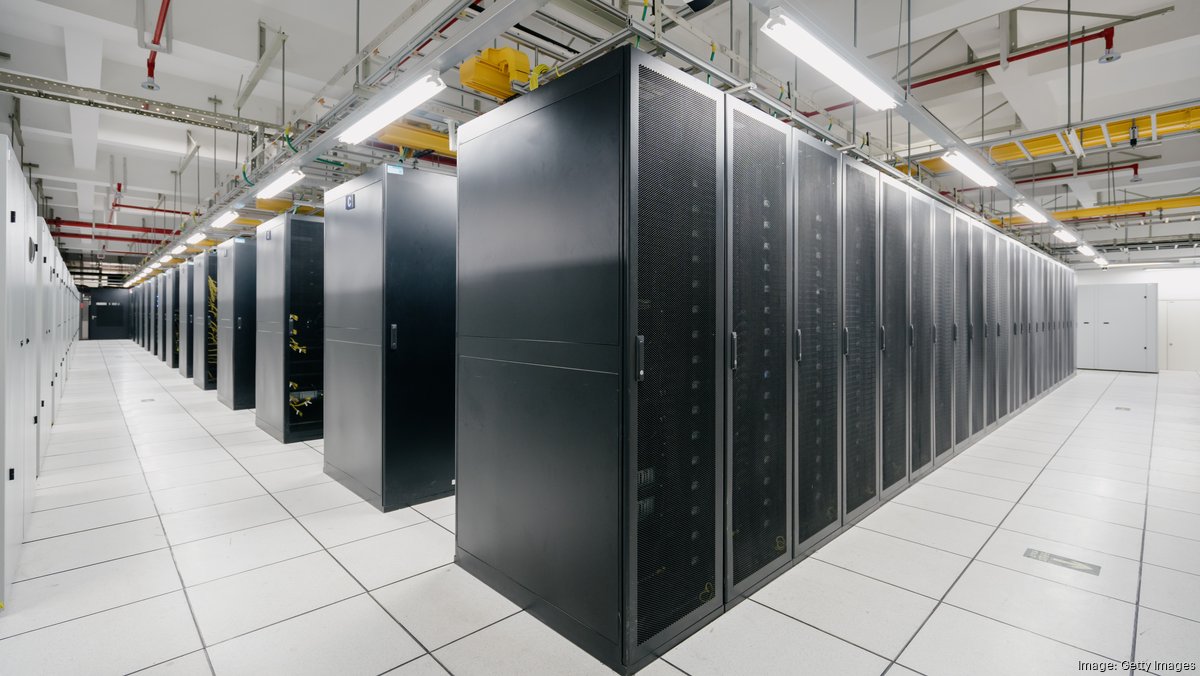China's Plans For A Space-Based Supercomputer: Challenges And Opportunities

Table of Contents
China's pursuit of a space-based supercomputer represents a bold leap in technological ambition, promising unprecedented capabilities in data processing and artificial intelligence. This article will explore the potential opportunities and significant challenges associated with this ambitious endeavor, examining its impact on global technological leadership and international collaboration in space. The development of such a system would mark a significant shift in computing power and global connectivity, impacting various sectors from scientific research to global communication networks.
Potential Opportunities of a Space-Based Supercomputer
Unprecedented Data Processing Power
A space-based supercomputer promises significantly faster processing speeds than ground-based systems due to reduced latency. This means data can be processed and analyzed much quicker, opening doors to previously impossible computational tasks.
- High-speed computing: The reduced distance between data sources and processing units dramatically improves computational speed.
- Distributed computing: A constellation of satellites could act as a distributed computing network, handling massive datasets far beyond the capacity of any single ground-based supercomputer.
- Cloud computing: This technology could integrate with cloud-based systems, offering seamless access to immense computing power on demand.
- Data centers: While not traditional data centers, the satellites would essentially act as high-capacity data processing centers in orbit.
- Satellite constellations: Networks of interconnected satellites will be crucial to maximize the processing capabilities and resilience of the system.
This enhanced processing power will revolutionize fields such as:
- Complex scientific simulations: Modeling climate change, simulating particle physics experiments, and advancing materials science become dramatically more efficient.
- AI training: Training advanced AI models requires immense computing power; a space-based supercomputer could accelerate this process exponentially.
- Big data analytics: Processing and analyzing the ever-increasing volume of global data becomes significantly faster and more efficient.
- Applications in climate modeling, disaster prediction, and resource management: Faster processing enables more accurate predictions and better informed decision-making.
Enhanced Global Connectivity and Communication
A space-based supercomputer could form the backbone of a significantly improved global communication network. The benefits would extend far beyond simple speed increases.
- Global communication networks: High-speed, low-latency communication links could span the globe, connecting even the most remote areas.
- Satellite communication: Existing satellite communication systems could be integrated with the supercomputer, creating a more powerful and versatile network.
- Network latency: The reduction in latency would improve real-time applications significantly, impacting everything from video conferencing to financial transactions.
- Data transmission speeds: Data transmission rates would dramatically increase, supporting applications that require high bandwidth.
- 5G, 6G: The technology could underpin future generations of mobile communication networks, increasing speed and reliability.
This improved global connectivity would significantly impact underserved areas by improving:
- Communication infrastructure: Reliable communication in remote areas, facilitating better education, healthcare, and economic development.
- Seamless integration with other satellite technologies: Earth observation data, navigation systems, and other satellite-based services could be seamlessly integrated for a more comprehensive global information system.
Advancement in Artificial Intelligence and Machine Learning
The immense computing power of a space-based supercomputer would greatly accelerate AI and machine learning research and development.
- AI development: More complex AI models could be developed and trained, leading to breakthroughs in various fields.
- Machine learning: Machine learning algorithms would be capable of processing vastly larger datasets and identify complex patterns much faster.
- Deep learning: The increased computing power would significantly accelerate the training of deep learning models.
- Neural networks: More complex and sophisticated neural networks could be implemented, leading to improvements in AI performance.
- Autonomous systems: Improved real-time data analysis would enable the development of more sophisticated autonomous vehicles, robots, and drones.
- Big data analytics: The supercomputer could process and analyze vast datasets in real-time, enabling improved decision-making across various sectors.
This advancement will create opportunities for breakthroughs in:
- Drug discovery: Simulations and analysis could significantly accelerate the process of drug development.
- Materials science: The design and development of new materials could be expedited through advanced simulations.
Significant Challenges in Developing a Space-Based Supercomputer
Technological Hurdles
Developing and deploying a space-based supercomputer presents numerous technological challenges.
- Space technology: The harsh environment of space requires significant advancements in space-qualified components.
- Radiation shielding: Protecting the sensitive electronics from radiation is crucial for the system's longevity.
- Power generation: Developing reliable and efficient power systems for long-duration space missions is a significant challenge.
- Thermal control: Managing heat dissipation in the vacuum of space is essential for the system's stability.
- Miniaturization: Reducing the size and weight of computing components is crucial for launching and maintaining the system.
- Component reliability: Components must be exceptionally reliable to function without maintenance in the harsh space environment.
Cost and Resource Constraints
The financial investment required for a space-based supercomputer is enormous.
- Space exploration costs: Launching and maintaining a large-scale space-based system is incredibly expensive.
- Funding: Securing the necessary funding from government or private sources will be a major challenge.
- Budget allocation: Efficient allocation of resources and prioritization of research and development efforts are critical.
- International collaboration: Sharing the costs and expertise through international partnerships could be necessary.
Security and Safety Concerns
The unique environment of space presents specific security and safety risks.
- Cybersecurity: Protecting the system from cyberattacks and data breaches is crucial.
- Data security: Ensuring the confidentiality, integrity, and availability of the data processed by the system is paramount.
- Satellite security: Protecting the satellites from physical damage or sabotage is vital.
- Space debris mitigation: Preventing collisions with space debris is a major safety concern.
- Collision avoidance: Sophisticated collision avoidance systems are needed to ensure the safety of the satellites.
- Space situational awareness: Maintaining a comprehensive awareness of the space environment is critical for operational safety.
Conclusion
China's ambition to build a space-based supercomputer presents both immense opportunities and formidable challenges. While the potential benefits in data processing, global communication, and AI advancements are substantial, overcoming the technological, financial, and security hurdles will require significant investment, innovation, and potentially international collaboration. Successful development could reshape global technological leadership and redefine our capabilities in tackling complex global challenges. Further research and development into space-based supercomputing, along with careful consideration of the associated risks, are crucial for harnessing the transformative potential of this revolutionary technology. The future of space-based supercomputing holds immense potential, and continued exploration of its possibilities is essential for global advancement. The pursuit of this ambitious goal requires a concerted global effort to address the challenges and unlock the immense potential of space-based supercomputing.

Featured Posts
-
 Taika Waititis Family Film Adds Mia Wasikowska To The Cast
May 20, 2025
Taika Waititis Family Film Adds Mia Wasikowska To The Cast
May 20, 2025 -
 Maybank Drives 545 Million Investment In Economic Zone
May 20, 2025
Maybank Drives 545 Million Investment In Economic Zone
May 20, 2025 -
 Investing In Big Bear Ai Bbai A Penny Stock Ai Opportunity
May 20, 2025
Investing In Big Bear Ai Bbai A Penny Stock Ai Opportunity
May 20, 2025 -
 Affare Amazon Hercule Poirot Per Ps 5 A Meno Di 10 Euro
May 20, 2025
Affare Amazon Hercule Poirot Per Ps 5 A Meno Di 10 Euro
May 20, 2025 -
 Understanding The Billionaire Boy Phenomenon Exploring The Dynamics Of Extreme Wealth
May 20, 2025
Understanding The Billionaire Boy Phenomenon Exploring The Dynamics Of Extreme Wealth
May 20, 2025
